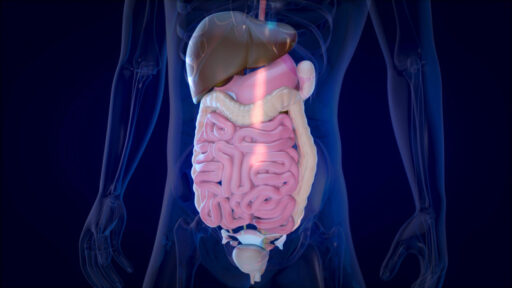Fiber In Your Life

Fiber and your child
No kids would say, they like a fiber-rich meal rather than a meat burger, pan cake, scramble egg, waffle, donut or muffin. It is a big challenge for parents to provide enough fiber in their daily meals. Toddlers age 1-3 years should get 19 grams of fiber per day. Older boys age 9-13 years should get 31 grams of fiber and teen boys age 14-18 years should get 38 grams per day. Older girls and teens should get 26 grams of fiber per day. Children develop a natural preference for the foods they enjoy the most, so the challenge is to make healthy choices. Of course, no matter how good your intentions, it is always going to be difficult to convince the importance of fiber-rich diet. We should make sure nutrition and fiber-rich diet is provided in every time and allowing for some of their favorite treats as parents.
Fiber Supplements and Bloating
There are numbers of reasons you may have bloating or gas. Can you pinpoint when your stomach start getting fussy? Was it after you began the fiber supplements? Increase fiber intake too quickly is creating one rout to bloating. If your fiber is coming in the form of supplement, you may want to cut the dose and considerer getting fiber from natural foods, from whole fruits, vegetables and grains rather than using supplements which may help prevent a fiber overload. Our natural food ingredients have more insoluble fiber than soluble fiber and just taking a dose of soluble fiber is not the real fiber intake to fulfill your everyday fiber requirements for healthier bowels.


Good for your Guts
It will come as a little surprise to many people that the main function of the digestive system is to process and absorb nutrients from our food. But how effectively the digestive system works does what fuel we give it? It is funny how we make sure we fill up our cars with right fuel, service them to keep them running well, but what about our bodies? Do we pay enough attention to that sophisticated engine we call the gut? Perhaps not enough……. The beauty of our body is that it is quite simple to keep them in good shape by the foods we eat. You know how to treat it. Eat fiber rich meals every time as possible.
Plant base fiber helps keep our gut happy and healthy
There is plenty to understand. According to recent articles in the journal of the Academy of Nutrition and Dietetics, our ability to lose weight may even be influenced by the type and amount of bacteria in our intestines. So what do bacteria in our intestines have to do with nutrition? Plenty, the food we eat which effect the flora that grows in our gut. Here’s one way it works, dietary fiber the indigestible part of the plant food-travels through the body, undigested. When it reaches the lower end of the digestive tract (the colon) it becomes food for microbes/bacteria in the colon. It is the interaction between friendly bacteria in the colon and the dietary fiber to push the waste out conveniently, keep your gut happy and healthy. Plant foods contain both soluble and insoluble fiber mostly insoluble fiber according to the plant characteristics.
Healthy Fiber basics
Fiber is the indigestible portion of food derived from plants and waste of animals that eat dietary fiber. It is readily fermented in the colon (of your intestine) into gases and makes physiologically active byproducts and can be prebiotic and viscous. Soluble fibers tend to slow the movement of food through the system. Soluble fiber can often lower bad types of blood cholesterol and smooth out blood sugar responses after a meal.

Insoluble fiber does not dissolve in water. It can be metabolically inert and provide bulking or prebiotic fermenting in the large intestine. Bulking fiber absorb water as they move through the digestive system, easing bowel movements. Fermentable insoluble fibers mildly promote stool regularity, softening stool and importantly shortening transit time through the intestine tract. On the other hand, insoluble fiber is often regulated as a stool-bulking agent; and it can exert a laxative effect by holding water in the lower bowel. Retaining water in stool contents makes stools bigger, softer and easier to pass.

Global trend for searching Novel dietary fibers
The dietary fiber market is categorized by geography, applications and types of dietary fiber. By geography; it is segmented in to North America, Europe, Asia Pacific and rest of the world. The dietary fiber segments include based on the popular variants, ie. Conventional/novel and soluble/insoluble. The global dietary fiber demand is expected to grow from 96,400 MT in 20011 to 216,000 MT by 2017, at an estimated annual growth of 14%. North Americans lead fiber additive consumption with a share of 36% in terms of value, Europe 31% and Asia Pacific 17%. North American region is expected to continue its dominance on the global dietary fiber demands; however due to the increasing impact for demand and the price increase, the growing drive towards hunting for alternate source of fibers, the trend soon change. China and India are the leaders in Asia pacific market; driving the demand due to the changing lifestyles and growing economies, boosting the convenience food sector to turn the demand for novel fibers.
Alice Bender, MS, RD, a nutritionist for the American Institute for Cancer Research, says the evidence on fiber and colon cancer, while mixed, is strong enough to make recommendations. “Our 2007 expert report looked at all the studies and concluded that foods high in fiber may lower the risk of colon cancer and colorectal cancer as well. “ we know that a plant-based diet rich in fruits, non- starchy vegetables, legumes and whole grains is associated with a lower risk of a number of the most common cancers-colorectal, stomach, mouth, pharynx, larynx and esophageal” bender says.
Gut Health
What is an unhealthy gut? How gut health affects you, most common questions now a days. The complexity of the gut and its importance to our overall health is a topic of increasing in the medical community. Numerous studies have demonstrated links between gut health and the immune system, mood, mental health, endocrine disorders, skin conditions and cancer.
The term “gut microbiome” refers specifically to the microorganisms or bacteria living in your intestines. While some bacteria are harmful our health, many are incredibly beneficial and even necessary to a healthy body. Good bacteria in your gut can enhance your immune system function, improve symptoms of depression, help combat obesity and provide numerous other benefits.
7 Signs of Unhealthy Guts
- Upset stomach
- Constant fatigue, sleep disorders
- Unintentional weight changes
- High Sugar
- Skin Irritations
- Autoimmune conditions
- Food Intolerance

7 Things To Do For Your Gut Health
- Lower your stress level
- Get enough sleep
- Take prebiotics and probiotics
- Stay hydrated
- Check for food intolerance
- Eat slowly
- Change your diet to a healthy one
It is very important to change your diet menu with lot of healthy foods such like proteins, vegetables and fruits one way or the other. Always choose to eat the right foods.
American’s fiber intake is 40% – 50% of what it should be. A balanced diet with lot of fiber, builds good bacteria. Prebiotics means non digestible INSOLUBLE plant fiber. Taking too much soluble fiber such like “psyllium husk fiber” may cause some damages to you and such insoluble fibers are not effective within the gut. Therefore, look for real INSOLUBLE PLANT FIBER.
Do Not Rely On Soluble Fiber Only
This is especially important with psyllium or wheat dextrin which can cause choking if you don’t drink it mixed with plenty of water. These supplements may cause digestive side effects, such as gas, bloating and diarrhea as well. Increase the soluble fiber in your diet slowly to allow your body to get used it but such fiber may also interact with supplements, including medications for diabetes, depression, high cholesterol and seizures, causing these medications to be more or less effective and increasing the risk of side effects, so talk to your doctor before taking soluble fiber supplements like psyllium, wheat dextrin to make sure these are safe for you.
We provide high-quality products

